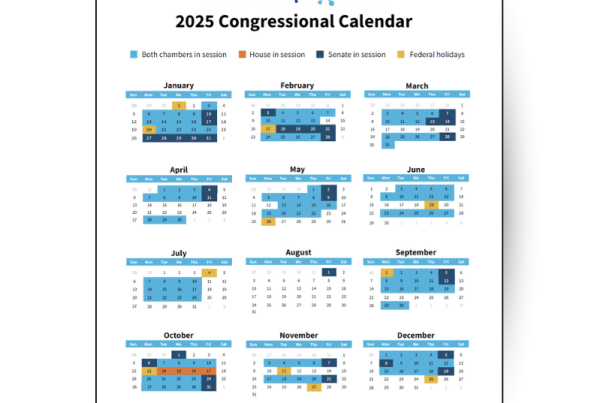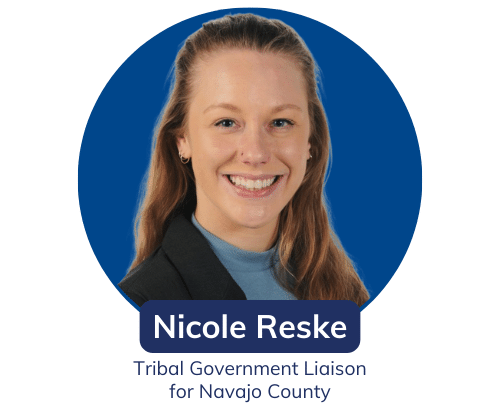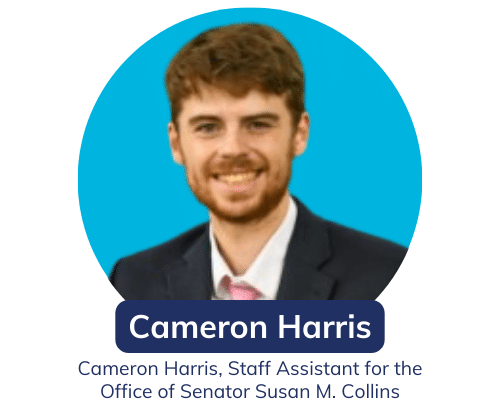In a previous interview with Leadership Connect, Juven Jacob shared insights into his experience working on Capitol Hill and the role that risk-taking played in shaping his career path. Now, as a Political Appointee for the Biden-Harris Administration in the U.S. Department of Housing and Urban Development (HUD), he continues to reflect on his evolving role in federal service. This conversation focuses on the latest updates in his career, including how his experience on the Hill has informed his work at HUD and the strategies he’s developed for navigating the unique challenges of working within a federal agency.
Takeaways:
- Take calculated risks and always be prepared—these are key to advancing your career in federal service.
- Focus on building genuine relationships, and your network will naturally become a valuable resource for collaboration.
- Stay organized and use tact to navigate the complexities of working within federal agencies.

How has your career within the federal government evolved, and what moments have stood out in shaping your career path?
It’s interesting being in the executive branch now because it’s the other side of the coin from my time on the Hill. In terms of my career evolution, I said this in the previous interview, and I still believe it’s true: taking risks really paid off. I’ve always approached things with the mindset that if I fail, it’s a lesson learned, not something bad. The most important thing in life is picking yourself up and continuing. For me, the risks I took helped me grow into the position I’m in now. I can say with confidence that if I hadn’t taken those risks, I wouldn’t be here. It’s about trusting my gut and knowing that failure is okay because you’ll always figure out the next step. That’s a sign of strength, not weakness.
One caveat to that is the importance of being prepared. I don’t believe in luck; I believe in being prepared when the opportunity presents itself. There have been many instances throughout my career where an opportunity came up, but if I hadn’t been prepared – like having my resume ready – I wouldn’t have been able to take advantage of it. For example, when I was in Texas, I was preparing myself to move to DC even though I didn’t have a job lined up. I knew I wanted to work in politics and public service, so I got rid of my house, sold my car, and moved in with a friend. That way, when a fellowship opportunity came up, I was able to pack up two suitcases and move to DC immediately because I had already taken the necessary steps. That’s how I’ve evolved: by preparing for opportunities and taking risks.
There’s a quote about how only writing things down isn’t enough – you have to create a plan and take action steps. For example, I could say I want to move to California, but if I don’t write out a plan and take action, it’s going to be a lot harder to make it happen. I always carry a notebook with me to write things down. There’s something about physically writing with pen and paper that holds you more accountable.
Can you describe how you’ve been able to leverage different relationships or your network to impact your federal agency?
I’ve always found it a little difficult to leverage relationships – it’s something that can feel uncomfortable. Instead of approaching relationships with “What can you do for me?” I focus on building genuine friendships or connections first. Just the other day, I was sitting with a friend and realized I don’t even know exactly what most of my friends do for work. That’s been true for most of my life, not just now that I’m further along in my career. It’s not something I usually ask, and I’ve found that the right moments for these conversations tend to happen naturally. It’s kind of like romantic relationships: when you’re not actively searching for someone, that’s when you tend to meet them. The same goes for networking – when you focus on the friendship first, career-related conversations come up naturally, whether it’s the third time you meet or the fifth.
Listening carefully is also key. It’s something I’ve struggled with and continuously worked on over the years. When I really listen and take mental notes about what’s going on in people’s lives, I can follow up on those things later and show I genuinely care. This helps build trust, and when the time comes that you might need something in terms of career, they’re more likely to make a recommendation or connect their network. Building that foundation is the most important part. That said, don’t be afraid to ask for help either. You have to be able to leverage your network because they know you best. Especially now that I have higher-level connections in government, I’m not afraid to ask for what I need. There’s a proper way to do it, of course, but you have to speak up because you never know what the response might be. I’ve been guilty of not asking before, and then finding out later that someone would’ve helped me if they’d only known.
As an appointee, part of my job is helping the Administration connect with stakeholders. I’ve found that when I meet new people, they tend to fit into my existing network naturally. What’s different about being in a federal agency is that, as an appointee, you’re dealing with the entire nation. My experience on the Hill, especially working with the Oversight Committee and in different offices across the country, helps me approach things with a broader perspective. It’s important to understand that while the federal government can’t do everything, it’s important to work closely with state and local governments because they’re more connected to the people.
What makes working within a federal agency unique, and what strategies do you use to overcome common challenges in your daily work?
The federal government is a large apparatus, and figuring out how it works is a learning curve. Even if you’ve been on the Hill before, it’s different. The government moves slowly, and while that can be frustrating, it’s for a reason. You want those checks in government. We’re using taxpayer money, and we need to be thoughtful and diligent with how it’s spent. So, while it can be challenging, as a public servant I appreciate the checks and balances that are in place.
One thing I’ve really come to appreciate in the federal government is the use of what we call intergovernmental working groups. These are task forces made up of public servants from different agencies tackling particular issues. For example, with housing, you need input from HUD, EPA, and DOT because the house is on land, next to a road, and water. You need multiple groups involved to act on initiatives from the President and legislation. I hold that dear because I was on the Hill when certain legislation passed, and now, in the executive branch, I’m helping implement those laws. Because of my Hill experience, I view things from a different lense.
If you think of the Administration as a ship, the career service employees are the ones who keep it running constantly, while appointees are at the helm helping to steer its direction. That’s why it’s so important to bring in career service employees because without them, you’re doing your public service a disservice. They have the subject matter expertise and will be here after the political appointees leave. I have an expiration date because it’s on the political calendar. It’s essential to get their buy-in and collaborate with them. I’m not an expert on everything about the agency, but I can help connect the dots to bring people together, and that’s where the appointee comes in.
What qualities or skills have contributed to your success in federal agencies, and what advice would you offer to someone aspiring to thrive in a similar role?
Like I mentioned, career service and political appointees are very different. Speaking from an appointee perspective, understanding the goals of the Administration is the most important thing. You’re representing the Administration and trying to move the agency forward under the framework of legislation and appropriations. One of the skills that has helped me succeed is having tact. You need to bring people on board, explain your point of view, and be able to execute what you’re trying to achieve. Being tactful when you need to push and follow up, while still showing respect to your career service colleagues.
Another important skill is being organized, even if it sounds elementary. There’s always a lot that happens, and it’s easy to get distracted. I’ve found it helpful to take a step back and look at the bigger picture before taking action on a project to determine what I’m trying to accomplish. The best thing I can compare it to is writing a paper: you need an outline and a vision before you start typing. By breaking things down and staying organized, you can approach challenges with an action plan and stay focused on the end goal. You’ll approach it with a level head and holistically.
Word Association, what is the first word that comes to mind for each of there?
- Relationships: Beneficial
- Networking: Tact
- Technology: Be smart with how you use it
- Policy: Bipartisanship
- Leadership Connect: Resource






